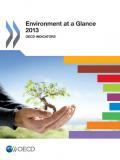Smart ICT and Internet applications have the potential to improve the environment and tackle climate change. Top application areas include manufacturing, energy, transport and buildings. Information and communication also foster sustainable consumption and greener lifestyles. At the same time, direct and systemic impacts related to the production, use and end of life of ICTs require careful study in order to comprehensively assess “net” environmental impacts. A better understanding of smart ICTs provides policy makers with options for encouraging clean innovation for greener economic growth. This summary was prepared by Eldis.
The Design for Sustainability (D4S) concept outlines methodologies for making sustainable improvements (social, economic and environmental) to products by applying elements of life cycle thinking. D4S builds on the work of ecodesign to include economic and social concerns, and its methodology includes both incremental and radical innovation. The United Nations Environment Programme and the Delft University of Technology, the Netherlands, in concert with key partners, work to support, illustrate, and diffuse targeted D4S demonstration efforts, including the European Commission-funded Cleaner Production for Better Products project in Vietnam, that are needed to change unsustainable consumption and production patterns.
The document provides guidance principles for Life Cycle Assessment (LCA) databases; this includes how to collect raw data, how to develop datasets and how to manage databases. The publication also addresses questions concerning data documentation and review, coordination among databases, capacity building and future scenarios. LCA databases provide fundamental energy, materials, land, water consumption data and emissions data into water, air and soil for a wide range of processes, products and materials. In this way, the publication provides the bridge between the data users and the data providers, making basic information easily accessible for computing the environmental footprints of materials and products that are key to make and judge green claims and to allow institutional and individual consumers to make informed consumption choices.
The document is the output of the UNEP/SETAC "Global Guidance for LCA Databases" workshop, (30 January - 4 February 2011, Shonan, Japan), also known as the ‘Shonan Guidance Principles’ workshop.

This book includes key environmental indicators endorsed by OECD Environment Ministers and major environmental indicators from the OECD Core Set. These indicators reflect environmental progress made since the early 1990s and thus contribute to measuring environmental performance. Organised by issues such as climate change, air pollution, biodiversity, waste or water resources, they provide essential information for all those interested in the environment and in sustainable development.
The report summarizes the findings of a study on the challenges and opportunities for small business development and decent job creation in the waste management sector. Based on research conducted in three municipalities of Free State, South Africa, the report highlights the vulnerable situation of waste pickers and makes recommendations for better waste management. The research was commissioned by the ILO Free State SME Development Initiative and conducted by the University of Western Cape and the University of Johannesburg.
